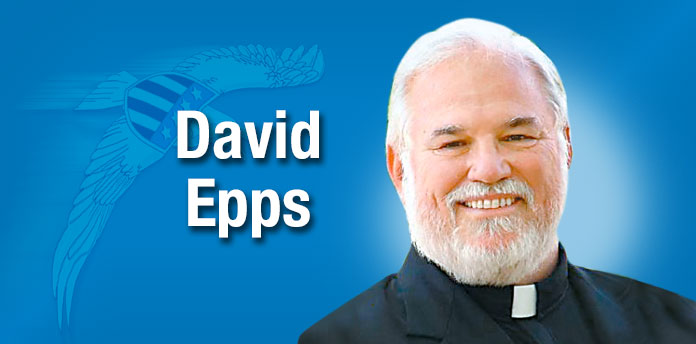Recently, I was in a hospital and saw a staff member wearing a T-shirt that read, “I’m a Nurse. What’s your superpower?” Later I saw a woman with a similar shirt that said, “I’m a teacher. What’s your superpower?”
Now curious, I began to look online for t-shirts that proclaimed superpower and found many. My favorite was “I make beer disappear. What’s your superpower?” I don’t drink beer, so I didn’t buy the shirt, but I did think it was funny.
Those of us who have grown up with DC and Marvel comics are well aware of the plethora of superheroes that have amazing superpowers. The Flash has unbelievable speed and Superman has all sorts of powers including invulnerability, x-ray vision, and the ability to fly, to name a few. Spiderman has super-spider powers.
For the most part, these superpowers came from external sources: The Flash was in a laboratory accident, Superman gets his powers from our yellow sun, and Spidey received a bite from a radioactive spider. So, what’s your superpower?
I believe that we all have at least one superpower in common. It is the ability to influence others.
When I was eight years old, my grandfather, Charles Duckett, who had four tattoos, urged me to never get a tattoo. He said that I would come to regret it. When I was nineteen and in the Marine Corps, most of my buddies were getting tattoos. I did not. Never have. I have nothing against them but my grandfather’s off-hand comment on the shores of Lake Patrick Henry that day influenced me for the next six decades.
When I was fifteen, I met the man who would be my first pastor. His name was Fred L. Austin. I have almost no church experience and my parents rarely went to church. I decided to go on my own.
There were three influences that Reverend Austin had on my life as a pastor: (1) He had a large library and was well educated with a degree in engineering and a Master of Divinity that took an additional three years. (2) He always had an open door to me, even as a teenager who probably didn’t give ten dollars to the church the entire time I attended. I don’t ever recall being turned away even when I showed up unexpectedly. (3) He cared as much about the youth as he did the adults. One might have thought, by the way he treated me, that I was the son of the board chairman. I always felt welcomed, valued, and respected — even though I almost always attended church alone, sometimes hitchhiking to get there.
For decades, I have built a substantial library, have acquired several degrees and diplomas, have an open-door policy whenever possible, and really love our kids and teenagers. All of this from the influence of one man on a teenage boy.
Last summer, I conducted the funeral of my childhood and teen years friend who attended that same church with me. Reverend Austin, near 90 years old, heard about it and had his son drive him five and a half hours round trip to attend the funeral. How could one not be influenced by a man like that?
In the New Testament, Paul had had enough of a junior disciple named John Mark. In fact, he refused to take him with himself and Barnabas on a missionary journey because he had failed once. Paul and Barnabas had a sharp disagreement over the young man and separated.
Barnabas, whose name means “son of encouragement,” took John Mark with him. In the end, we find Paul writing and requesting that John Mark be sent to him because he was “profitable to me in the ministry.” Barnabas had the superpower of influence. As do we all.
One can, of course, use this superpower to discourage others, rather than to influence them positively. Twenty-five years ago, when we were planning to begin the church I now serve, I saw a different side of a businessman that I counted as a friend. Every time I went into his business, he was negative about the prospect of another church. I would leave with doubts trying to crowd into my thinking. Eventually, I just stopped going into his business. I valued him but I didn’t need the negativity.
Sometimes one must change friends and maybe even leave them behind to avoid such influences. If we use the superpower of influence wrongly, we can mark someone for life. On the other hand, there are people all around us who could benefit from genuine encouragement and kind words and attitudes.
A few years ago, I did an informal survey of restaurant servers. Among the questions I asked was this one: “Who are the people that you least desire to see come into your restaurant?” The surprising answer, without exception, was “the Sunday after church crowd.”
“Why?” I asked.
“Because,” came the reply in one fashion or another, “they are the most demanding, the least polite, and the worst tippers.” I decided that I was going to be the opposite of all that. I hope that when servers see me at their table, they know by now that I will be friendly, interested in them, polite, and leave a generous tip at the end of the meal.”
By the way, we should avoid using negative influences on ourselves as well. “I’m no good, “I’m too (ugly, short, skinny, fat, uneducated, old, young, untalented, the wrong race, the wrong sex — pick one). The Bible says that we are “fearfully and wonderfully made,” that before God formed us in the womb he knew us, that we are meant to be “the head and not the tail.” Sometimes we are our own worst enemy, especially when we self-influence ourselves negatively.
Use your superpower! Make a positive difference in someone’s life every day. Encourage yourself at times when you need to. Maybe make yourself a t-shirt that says, “I’m an encourager. What’s YOUR superpower?” You just might influence someone’s life and be remembered for a lifetime.
[David Epps is the Rector of the Cathedral of Christ the King (www.ctk.life). During the pandemic, the church is open at 10:00 a.m. on Sundays but is also live streaming at www.ctk.life. He is the bishop of the Diocese of the Mid-South (www.midsouthdiocese.life) He may contacted at [email protected].]













Leave a Comment
You must be logged in to post a comment.